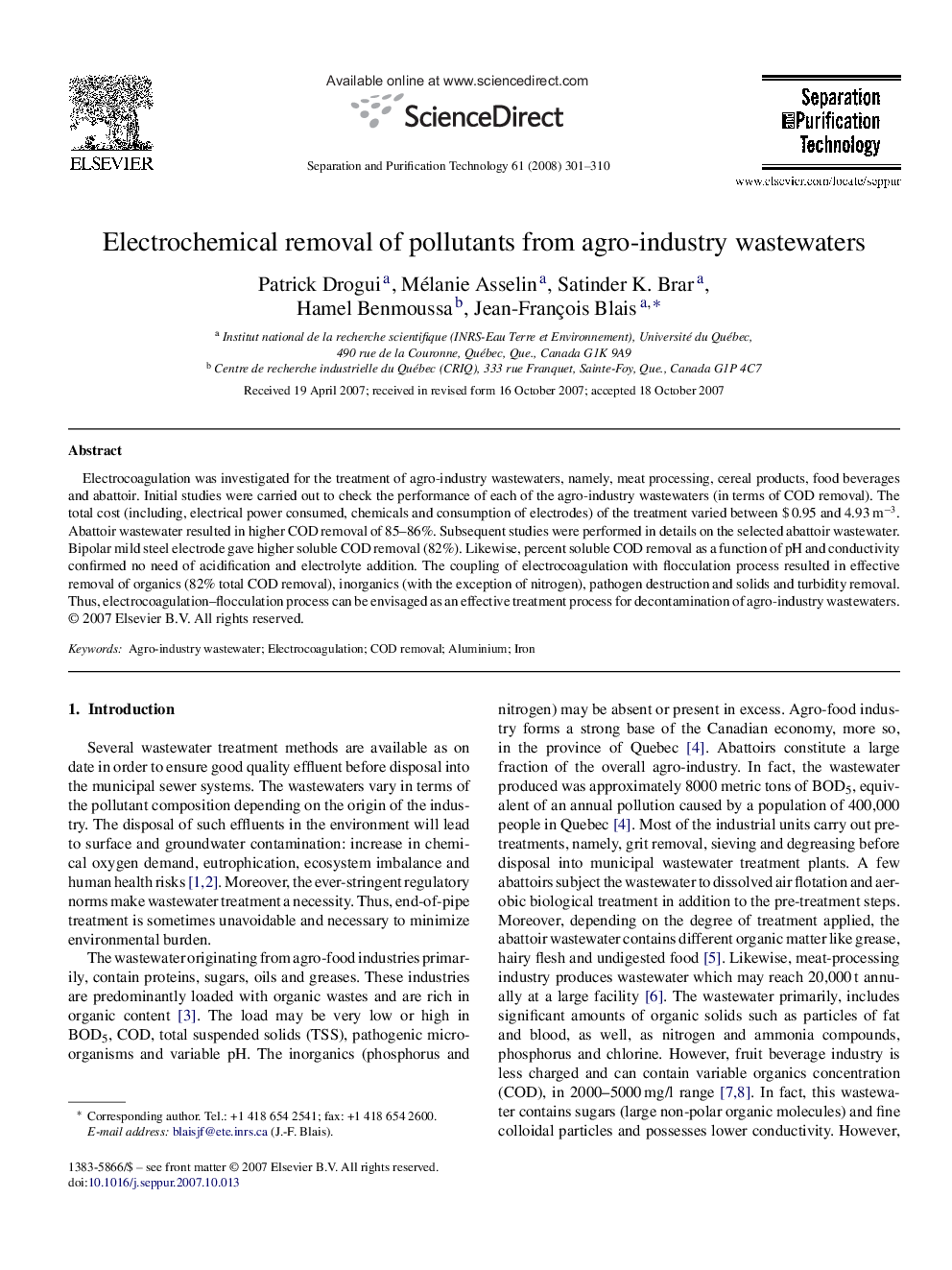| Article ID | Journal | Published Year | Pages | File Type |
|---|---|---|---|---|
| 643749 | Separation and Purification Technology | 2008 | 10 Pages |
Electrocoagulation was investigated for the treatment of agro-industry wastewaters, namely, meat processing, cereal products, food beverages and abattoir. Initial studies were carried out to check the performance of each of the agro-industry wastewaters (in terms of COD removal). The total cost (including, electrical power consumed, chemicals and consumption of electrodes) of the treatment varied between $ 0.95 and 4.93 m−3. Abattoir wastewater resulted in higher COD removal of 85–86%. Subsequent studies were performed in details on the selected abattoir wastewater. Bipolar mild steel electrode gave higher soluble COD removal (82%). Likewise, percent soluble COD removal as a function of pH and conductivity confirmed no need of acidification and electrolyte addition. The coupling of electrocoagulation with flocculation process resulted in effective removal of organics (82% total COD removal), inorganics (with the exception of nitrogen), pathogen destruction and solids and turbidity removal. Thus, electrocoagulation–flocculation process can be envisaged as an effective treatment process for decontamination of agro-industry wastewaters.
